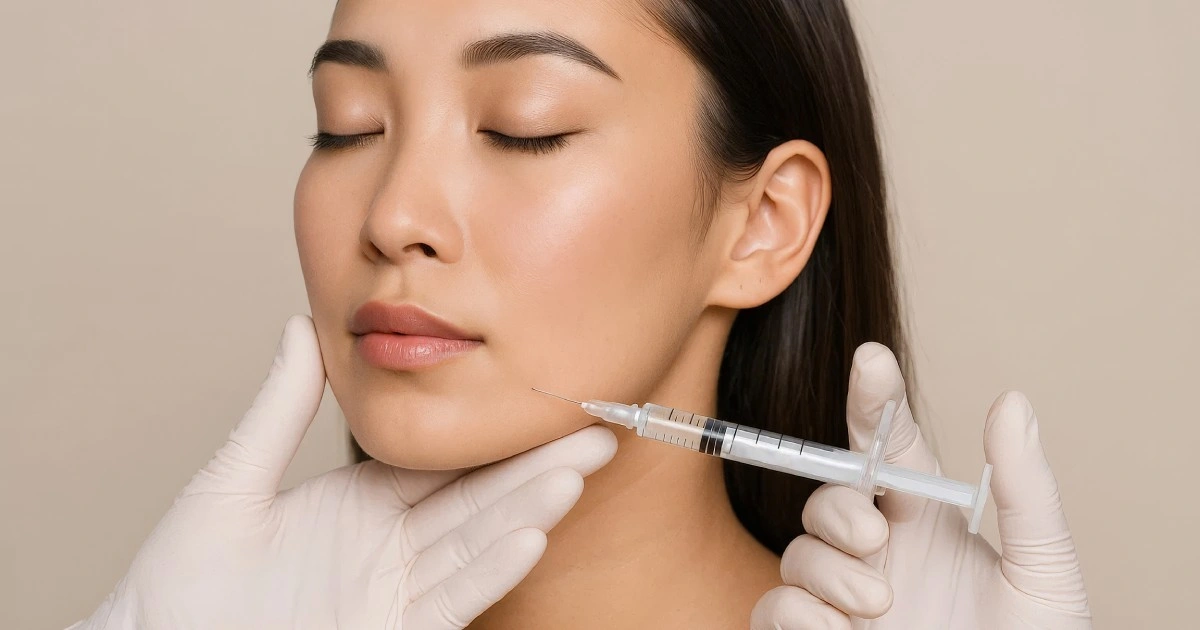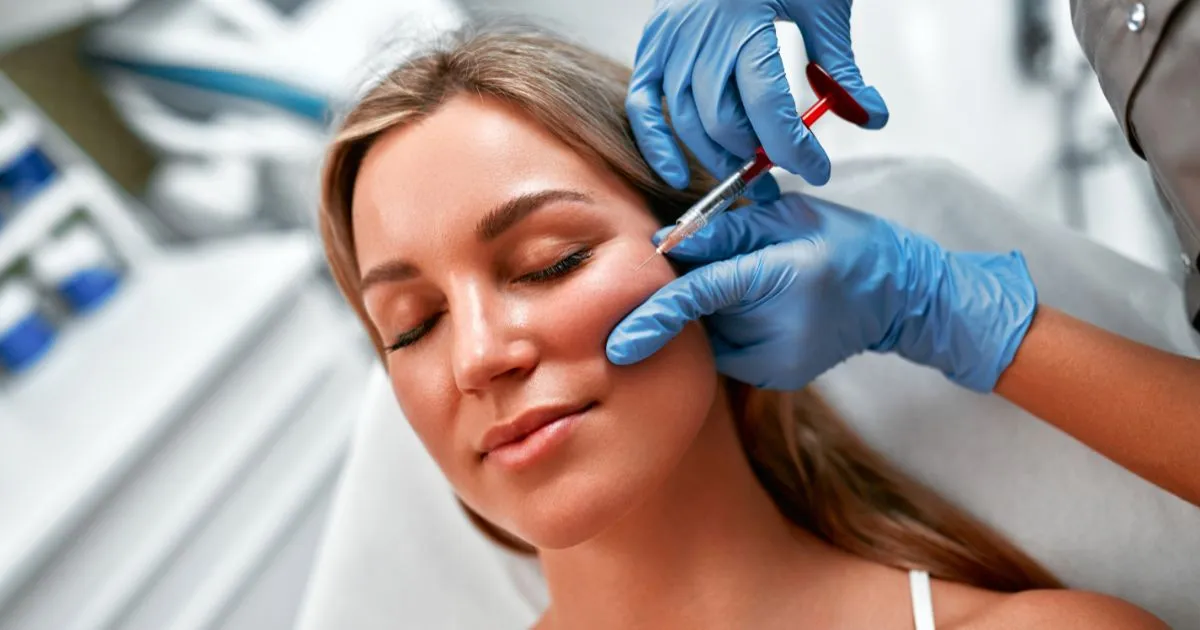Botox has become increasingly popular as a non-surgical cosmetic solution for minimizing wrinkles and fine lines, attracting millions of users annually. Given its widespread usage, one might assume that Botox is inherently safe. However, despite its popularity, understanding the safety considerations and potential side effects of this treatment is paramount.
While many individuals opting for Botox may seem reassuring, recognize that every person’s medical history, physical condition, and individual treatment response can vary. By being proactive and well-informed, you can optimize your experience with Botox and achieve the desired results while minimizing potential risks.
Understanding the treatment process, choosing an experienced practitioner, disclosing your complete medical history, and being aware of possible side effects are vital steps to ensure your safety and make an informed decision about undergoing Botox treatment.
Botox Overview
Botox, derived from the bacterium Clostridium botulinum, is a neurotoxic protein commonly known as Botulinum Toxin. Botox works by temporarily paralyzing specific muscles when administered in small, carefully measured doses.
Botox effectively prevents contractions by targeting the muscles responsible for forming wrinkles and fine lines. This mechanism allows the overlying skin to appear smoother and more youthful. The treatment interrupts the communication between nerves and muscles, temporarily relaxing the targeted area.
A skilled practitioner can create a smoother, rejuvenated appearance by strategically injecting Botox into specific facial muscles. The results of Botox are transient, typically staying for a few months before gradually wearing off. Retreatment may be necessary to maintain the desired results as the muscle activity slowly returns.
Is Botox Safe?
Botox is considered a safe treatment option when aided by a qualified and proficient medical professional. Its safety has been affirmed by the approval of the U.S. Food and Drug Administration (FDA) for a range of cosmetic and medical purposes. These include the treatment of migraines, excessive sweating, and muscle spasms. The FDA’s approval serves as a testament to Botox’s extensive research, rigorous testing, and meticulous evaluation to ensure its safety and effectiveness.
By entrusting your Botox treatments to skilled professionals, you can have confidence in the safety and reliability of this widely accepted procedure.
Choosing a Qualified Practitioner
A qualified practitioner should have a comprehensive understanding of facial anatomy and a profound knowledge of the intricacies of the muscles and nerves involved. This expertise enables them to identify the target areas and administer Botox injections accurately.
Furthermore, an experienced practitioner will be well-versed in the appropriate dosage of Botox for each individual, considering factors such as age, skin condition, and treatment goals. They will also know the most effective injection approaches to acquire optimal outcomes while minimizing the risk of complications.
Research and seek recommendations from trusted sources when choosing a practitioner. Look for reviews and testimonials that highlight their qualifications, expertise, and positive patient experiences.
Common Side Effects
While Botox is generally safe, there are some common side effects that you should be aware of. These side effects are usually temporary and resolve independently within a few days or weeks. They may include:
- Injection Site Reactions: It’s common to experience redness, swelling, bruising, or pain at the injection site. Applying an ice pack can help alleviate these symptoms.
- Headache: Some individuals may experience mild headaches after receiving Botox injections, but these usually subside quickly.
- Flu-Like Symptoms: In rare cases, individuals may develop flu-like symptoms, including fatigue, muscle weakness, and a general feeling of being unwell. These symptoms typically disappear within a few days.
Serious Side Effects
While rare, serious side effects can occur with Botox injections. Be aware of these possibilities and consult your healthcare provider immediately if you experience any of the following:
- Difficulty Breathing or Swallowing: If you have trouble breathing or swallowing after receiving Botox, seek medical attention immediately, as this could be a sign of an allergic reaction or an adverse event.
- Drooping Eyelids or Uneven Facial Expressions: In some cases, Botox can cause temporary drooping of the eyelids or uneven facial expressions. This typically resolves as the effects of the treatment wear off.
- Spread of Toxin: While extremely rare, the toxin used in Botox injections can spread beyond the intended area and cause muscle weakness or paralysis in nearby muscles. Choosing a skilled practitioner can minimize this risk.
Precautions and Considerations
Before undergoing Botox treatment, there are a few precautions and considerations to keep in mind:
- Medical History: Inform your practitioner about your complete medical history, including any medications you are currently taking or any medical conditions you have.
- Pregnancy and Breastfeeding: Botox injections are not recommended for pregnant or breastfeeding individuals, as the effects on the fetus or infant are not fully understood.
- Expected Results: Understand the limitations of Botox. It is not a permanent solution and requires maintenance treatments to sustain the desired results.
Botox Procedure: What To Expect
Familiarizing yourself with the process can help alleviate any concerns or apprehensions. This section will discuss the typical steps involved in a Botox procedure, from the initial consultation to the post-treatment period.
1. Consultation and Assessment
The first step in the Botox journey is an initial consultation with a qualified practitioner. During this consultation, you will have the prospect to examine your goals and expectations for the treatment. The practitioner will assess your facial anatomy, skin condition, and medical history to determine if you are a suitable candidate for Botox.
2. Preparation and Administration
No anesthesia is usually required, as the procedure is generally well-tolerated. However, if desired, a topical numbing ointment may be applied to minimize discomfort.
The practitioner will carefully administer the Botox injections into the targeted muscles using a fine needle. The number of injections will depend on the treatment area and the specific concerns being addressed.
3. Post-Treatment Care
Avoid excessive heat exposure, strenuous physical activity, or massaging the treated area for a specified period. It’s normal to experience mild redness, swelling, or bruising at the injection sites, but these commonly settle within a few days.
Takeaway
Ready to rejuvenate your appearance and reduce those pesky wrinkles? Look no further than RO Aesthetics. Our experienced team of experts specializes in safe and effective Botox treatments. Experience the transformative power of Botox and unlock a refreshed, youthful version of yourself. Don’t wait another day to achieve your aesthetic goals. Take the first step towards a more confident you by booking your Botox treatment with RO Aesthetics by contacting us today.




